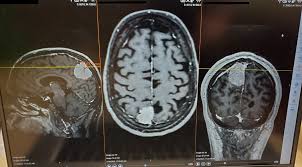Brain surgery is a complex field that addresses conditions affecting the brain, spine, and related structures. Understanding the various types of brain surgeries helps demystify the procedures used to manage and relieve symptoms of neurological disorders. Here’s more on what brain surgeons do, the forms of surgery they perform, and the health issues they assist in treating:
What Does a Brain Surgeon Do?
A brain surgeon, also known as a neurosurgeon, diagnoses and treats conditions that affect the brain, spinal cord, and nerves. Their expertise extends to both the central and peripheral nervous systems. While patients might assume these specialists only manage brain tumors, their skills cover a wide range of neurological challenges. Some of the key conditions neurosurgeons address include:
- Brain and Spinal Tumors: Masses that develop in the brain or spinal tissues, possibly impacting movement or cognition.
- Aneurysms: Weaknesses in blood vessel walls in the brain that may cause bleeding.
- Arterio-Venous Malformation (AVM): Abnormal connections between arteries and veins that can disrupt normal blood flow.
- Trigeminal Neuralgia: Chronic pain affecting the trigeminal nerve in the face.
- Spinal Disorders: Including herniated discs, spinal stenosis, or injuries.
- Epilepsy and Movement Disorders: Surgical treatments may be suggested for certain severe cases.
What Surgery Options are There?
Neurosurgical procedures are highly specialized and tailored to each patient’s unique condition, focusing on the underlying medical issue, the location of the problem, and the safest, most effective treatment strategy. The primary types of neurosurgery performed include brain surgery, pituitary surgery, and spinal surgery. Each type addresses distinct anatomical regions and clinical needs.
Brain Surgery
When treating conditions within the brain, neurosurgeons often perform a craniotomy, which involves carefully opening part of the skull to access the brain itself. This procedure allows surgeons to remove tumors that might be causing symptoms or threatening overall neurological function. For cases involving smaller or more deeply located targets within the brain, less invasive methods, including endoscopic or stereotactic surgeries, may be chosen. These techniques use advanced imaging and navigation systems, minimizing trauma to healthy tissue and potentially reducing recovery time.
Pituitary Surgery
The pituitary gland is a small hormone-producing organ located at the base of the brain. Tumors or cysts here can disrupt hormone levels. Pituitary surgery can help restore normal hormonal function and relieve symptoms associated with pituitary disorders. Some pituitary surgery methods involve:
- Transsphenoidal surgery: This minimally invasive approach removes pituitary tumors through the nasal passages, often without the need for an external incision. This approach avoids external incisions, reduces visible scarring, and supports a quicker recovery compared to open cranial surgery.
- Microsurgical techniques: High-powered tools allow for precise work near sensitive brain structures.
Spinal Surgery
Spinal surgery is another key area of expertise in neurosurgery. These operations address a wide range of problems that affect the spinal cord, vertebrae, and surrounding nerves. When tumors develop in or around the spinal column, surgical removal may be necessary to relieve pressure on neural tissue and preserve motor or sensory function. Spinal procedures, though complex, often lead to substantial improvements in comfort and daily functioning.
Patients with herniated or damaged spinal discs may undergo repair procedures, which can relieve chronic pain and restore mobility. Spinal fusion, involving the permanent joining of two or more vertebrae, is performed to stabilize segments of the spine weakened by injury, deformity, or degenerative disease. Decompression surgery is designed to relieve pressure on nerves, often resulting in reduced pain, numbness, or weakness.
Learn More From a Brain Surgeon Today
Brain and spine surgery may sound daunting, but each method is designed to address particular health issues with precision and care. By working with a knowledgeable neurosurgeon, individuals can find tailored solutions for a variety of neurological challenges. If you or someone you know is facing a neurological condition, consult a qualified brain surgeon to explore your options.

Leave a Reply